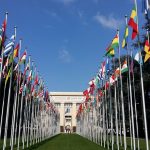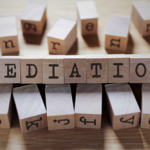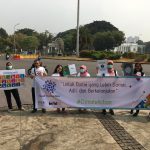
By Jesse Coleman
January 14, 2020
Can the investment regime be used to enhanced access to remedy and corporate accountability for human rights abuses in the context of international investment? If so, how?

By Brooke Skartvedt Güven
January 3, 2020
Investor-state mediation is a mechanism that is increasingly considered as a way to resolve disputes between companies and their host-country governments. Mediation merits exploration precisely because it can be adapted by the parties to the circumstances of any particular investment-related issue and be used to support mutually-beneficial outcomes. In this way, its malleability should be viewed as a tool that, if properly used, could overcome the failures of the investor-state dispute settlement (ISDS) system evidenced by the current “legitimacy crisis” that ISDS faces. However, to the extent mediation’s flexibilities are used to facilitate processes or outcomes that sideline domestic legal processes, third-party rights and interests, and norms of democratic accountability and the rule of law, it will undoubtedly meet the same fate as ISDS.

In this profile, Bénéwindé Rouamba, Head of Project for Land for Life at Welthungerhilfe, and a 2019 Executive Training alumnus, addresses rural land governance policy reforms and sustainable agricultural investment to protect the food security and livelihoods of vulnerable groups in Burkina Faso, Ethiopia, Liberia, and Sierra Leone.
By Lisa Sachs, Ella Merrill, and Lise Johnson
December 9, 2019
Our planet faces unprecedented threats, including irreversible global warming, loss in biodiversity, and water pollution and water scarcity. The impacts of these environmental crises also threaten human rights and exacerbate inequality. Slowing these worsening environmental trends – and addressing the impacts of environmental change on populations – will require cumulative policy responses at the national and international level.
November 2019
Actors working on supporting progress on the governance of extractive industries (GEI field) have long understood the importance of political context in determining outcomes from EI and from interventions designed to improve these. Much less clear has been how to systematically integrate political concerns – related to power, interests/incentives and political systems – into this work.

By Solina Kennedy
November 12, 2019
In this interview, the fourth of the Climate Crisis, Global Land Use and Human Rights series, Ángel Muñoz, Associate Research Scientist on Climate Variations and Predictability at the Earth Institute’s International Research Institute for Climate and Society at Columbia University, discusses the importance and implications of equipping countries with access to good climate data, climate services, and supplementary financial tools to optimize resiliency within communities.
During the October 21, 2019 webinar with Professor Jeffrey Sachs discussing CCSI’s report, Ensuring Economic Viability and Sustainability of Coffee Production, there were more questions asked than we were able to answer. We wanted to address this by answering some additional questions here.
By Lisa Sachs
October 16, 2019
To contribute to UNCITRAL’s work on these ISDS reform, CCSI, together with the International Institute for Environment and Development (IIED) and the International Institute for Sustainable Development (IISD), has submitted to the UNCITRAL process four documents outlining potential reform options and considerations.

By Solina Kennedy
October 4, 2019
In this interview, the third of the Climate Crisis, Global Land Use and Human Rights series, Daniel Oscar Baskoro, Partnership Advisor at the International NGO Forum on Indonesian Development (INFID), discusses transdisciplinary collaboration as a necessary means to addressing the challenges and solutions at the intersection of climate change and human rights.

By Solina Kennedy
September 20, 2019
In this interview, the second of the Climate Crisis, Global Land Use and Human Rights series, Julie Maldonado, Associate Director at Livelihoods Knowledge Exchange Network (LiKEN) and Co-Director of Rising Voices: Climate Resilience through Indigenous and Earth Sciences, discusses the importance of centering Indigenous wisdom and perspectives and relational-based approaches in the pursuit of just climate change actions.









